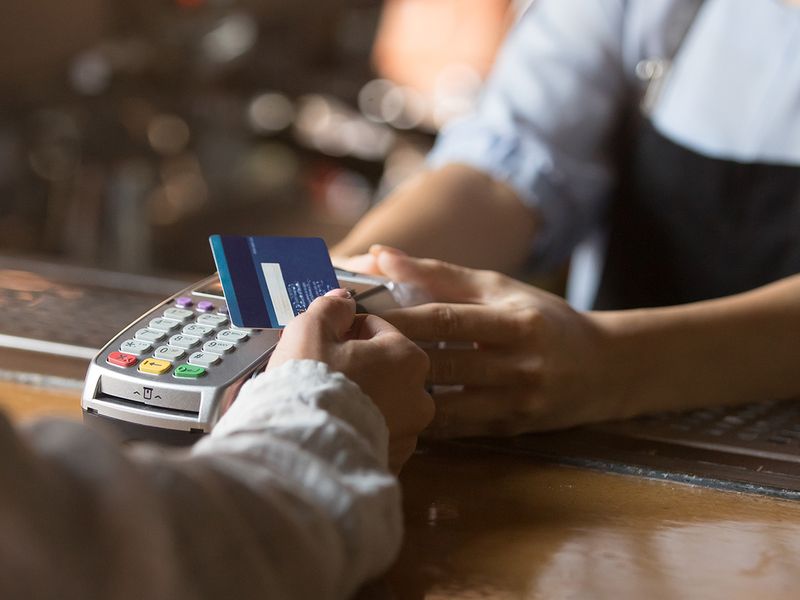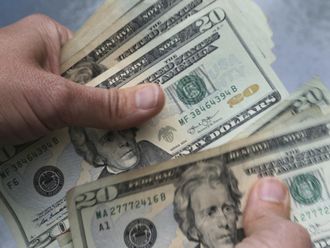
Dubai: Maxing out your credit card means you’ve reached your credit limit — and if you don’t pay that balance off in full immediately, this can hurt your credit score and cost you significantly in interest.
In other words, if you use your credit card regularly without making your payments in full, interest piles up. Eventually, you may even max out your credit card.
When you reach your credit limit, it leads to several immediate and long-term consequences to your financial health.
How does your credit score drop when you max out your credit cards?
Ideally, when you can afford it and have enough disposable income to exceed your basic expenses, you should pay off your maxed-out card as soon as possible.
That’s because when you charge up to your credit limit, your credit utilisation rate, or your debt-to-credit ratio, increases. This causes a drop in your credit score.
Credit bureaus discourage users from using all of their available credit, as it indicates that you are spending beyond your means.
Ideally, although you should always pay your balance off in full by its due date, when your card is maxed out you should try to pay off your balance as soon as the maxed-out charges post to your account.
What happens if you wait to pay off the balance until the end of your billing cycle?
Waiting to pay off the balance until the end of your billing cycle increases the likelihood of your credit card issuer reporting the high utilisation rate to the credit bureaus (which you want to avoid).
Experts generally suggest keeping your credit utilisation rate below 30 per cent, but a maxed-out card would report that you’re stretching yourself thin by using 100 per cent of your available credit.
If you can’t pay the credit card off completely, you could make multiple payments during the month to at least lower the balance a little.
If your credit score is good, you could also consider asking for an increase in your credit limit (though having a maxed-out credit card may make your approval for a credit limit increase less likely).

Minimum payment isn’t enough if you want to get rid of a high credit card balance
A Dh5,000 balance at 20.21 per cent interest will take more than 45 years to pay off with minimum payments, assuming those are set at 2 per cent of the balance, according to a credit card minimum payment calculator.
(Statistics indicated that the average annual interest rate on credit card purchases worldwide was 20.5 per cent in February. Data further shows that central banks worldwide have hiked rates in March, but that hasn’t translated into higher credit card interest rates yet. Business credit cards have the lowest average interest rate of 17.4 per cent.)
Ideally, you should pay as much as you can each month to make significant progress reducing your credit card balance.
The amount you can afford to pay on your maxed-out credit card depends on your monthly income and expenses. Evaluating your budget helps you see where you can cut spending and free up funds to put toward your credit card balance.
3 steps to take soon after your credit card is maxed out
Step #1: Set up a payment plan
Once you know how much you can pay toward your credit card each month, you can create a plan for paying down your balance. Decide how much you’re going to pay toward your balance each month.
You don’t have to make payment arrangements with your credit card issuer, but writing down your payment plan keeps you accountable and helps you see what you should pay each month.
Use a credit card calculator, which are freely available online, to figure out how long it will take to pay off your credit card balance based on your monthly payment.
Bring your balance down even faster by taking advantage of opportunities to make extra payments. If your maxed-out card is a rewards card, consider redeeming any accumulated rewards for a statement credit to bring your balance down.
Step #2: Negotiate a lower interest rate
If you have a good payment record, you might be able to negotiate a lower interest rate, despite the fact that you've maxed out the account.
Getting a lower interest rate is one of the best ways to pay off a high credit card balance sooner. You'll pay less interest each month and have a lower minimum payment.
However, a prudent fix recommended by credit experts is to make higher payments even after you get the rate lowered.
This is so that more of your money goes toward reducing the principal balance and decreasing what you owe faster.

Step #3: Transfer your balance to another credit card
If your credit card company won't budge on the interest rate, see if you qualify for a credit card with a zero per cent introductory rate. These cards typically offer zero interest on balance transfers and purchases for the first 12 to 18 months.
You can transfer your existing balance and make higher payments during this period to pay off the card. However, this strategy can only work if you don't accumulate new debt. After transferring your balance to the new credit card, get rid of the old credit card.
So without interest being added to your balance each month, your full payment goes toward reducing your credit card balance. However, if you still have a pretty good credit score, which ranges between 670 to 739, you may have other options for dealing with your maxed out balance.
A personal loan is another option for temporarily settling your credit card balance. You’ll still owe the same amount of money, but consolidating with a personal loan gives you a fixed monthly payment and a fixed payment schedule. An ideal loan has a lower interest rate and a relatively short repayment period.
This cycle keeps you stuck, and your debt won't go away anytime soon. The fix is to stop using the credit card, at least this way, you can make headway with each payment and eventually pay off the balance.
Bottom line
Maxed-out credit cards often indicate a spending problem or financial strain, so it's no surprise a high balance can lower your credit score.
Fortunately, if you immediately address the issue and adjust your spending, you can knock down those balances and improve your credit rating. The above tips can get you back on track when you max out a card.
Learning that your credit cards are maxed out doesn't mean you should apply for a new credit card. You must learn to use credit responsibly, or else you'll just dig a deeper debt hole for yourself.
If you apply for a new credit card, there's a pretty good chance that you'll also max out the new account. You'll double your financial trouble and add more debt than you can possibly handle.
Maxing out your credit cards can trigger higher minimum payments, and there's the risk of default if you can't afford the higher amount. Additionally, missing or sending late payments can damage your credit score and create problems with your creditors.
The bank can charge late fees, raise your interest rate, or take legal action to collect what's owed. So make at least the minimum payment by the due date, and if you're going to be late, ask your creditor for an extension.











